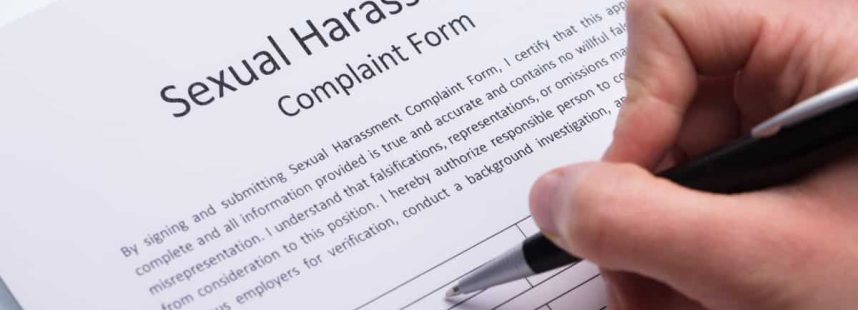|
|
Last
Modified on
May 02, 2024
All too often, sexual harassment charges in the workplace are virtually ignored. People accused of harassment or discrimination may feel as though they have no right to fight back, or that it may be impossible to prove a negative–that is, that they did not harass someone else. Worse, you may feel as though you may face retaliation in the workplace if you fail to accept the charges and move on professionally.
The reality, however, is that you may stand to gain more from defending yourself than you think. If you have faced unfair sexual harassment charges in the workplace, consider what remedies you might pursue for those accusations and their impact on you.
Back Pay
Often, sexual harassment proceedings can have you out of work for days or even weeks during the investigation. Sometimes, that means being suspended without pay. You may even find yourself suspended without pay as part of a punishment for perceived sexual harassment. If you can prove that you did not commit an act of sexual harassment and that you were charged unfairly, on the other hand, you can not only collect compensation for the missing income, you can collect triple back pay for that period of time.
The triple back pay may also apply to increased income from promotions or raises that you would have received if you had not been accused of sexual harassment, but that you did not receive as a direct result of those accusations. Working with an attorney can help you learn more about the specific calculations for back pay in those circumstances.
Reinstatement
Losing your job over a sexual harassment claim can prove devastating, especially if you did not commit that act of sexual harassment. Sometimes, you may want to continue to work for the company, especially if the loss of your job has impacted your ability to get a job in another field. If you were fired as a result of false sexual harassment charges, however, you may find that you have more rights than you initially thought, including the right to be reinstated in your former position. A lawyer can help you understand how reinstatement may work and how you should handle a request for reinstatement if your position has already been filled.
Legal Fees
Legal fees are one of the top reasons that many people, when accused of sexual harassment, choose not to fight the claim. The cost of paying for a lawyer may seem incredibly difficult to manage, especially alongside the other costs that may pile up after a sexual harassment claim.
As part of your sexual harassment remedies, however, you may choose to pursue compensation for your legal fees. Your employer may have to take care of the cost of an investigation and lawsuit following an unfair sexual harassment claim.
Emotional Distress
Facing sexual harassment charges in the workplace can leave you in immense emotional distress. You may feel immensely worried about what will happen next or face a considerable blow to your reputation. Talk to a lawyer about the emotional distress these accusations have caused you, including the overall impact they have had on your life, and how to include them as part of your claim.
Sexual Harassment Training and Policy Mandates
In addition to the financial remedies you can pursue for yourself in the aftermath of an unfair sexual harassment claim, you may also have the right to pursue changes throughout your organization. Your employer, in settling your lawsuit, will have to acknowledge that they did, in fact, commit a violation of your rights and that they failed to adequately investigate the incident. Then, your lawsuit may require them to make changes that will create impact for you and for other employees in the future.
Training
Sexual harassment training can help employees learn how to identify sexual harassment in the workplace as well as establishing exactly what it is and how employees should respond when they experience or observe sexual harassment. Often, simply increasing awareness can go a long way toward changing things around the office. Proper sexual harassment training can also make it easier to determine when harassment takes place–or doesn’t take place–in the workplace, since other employees can help serve as witnesses.
Policy Changes
Some employers, especially smaller employers, may not have sexual harassment policies in place until something happens in the workplace–and sometimes, especially in an at-will state, it may be easier to simply fire the employee accused of sexual harassment and move on. However, if you were unfairly accused of sexual harassment, simply firing you may open your employer up to a host of other legal challenges and complications. As part of your lawsuit, you can require that your employer create a solid policy that establishes:
- What sexual harassment looks like, including specific examples of activities the employer needs to act on
- How the employer needs to respond in the event of sexual harassment, including policies that protect both people who have faced harassment and those who may have unfairly been accused of harassment
- A specific policy and plan for investigation in the event of a sexual harassment claim in the workplace
What Should You Do When You’re Accused of Sexual Harassment?
If you’re unfairly accused of sexual harassment, you have the right to fight those charges. You should:
Document relevant interactions.
Document all paperwork or communications sent to you regarding a sexual harassment accusation, including communications from HR that might indicate how you need to change your behavior or what you might need to do about it. You may also want to keep track of any communications you have with the individual who accused you. Back up emails and other documents if needed.
Contact a lawyer.
If you have been accused of sexual harassment unjustly, you don’t want it on your employment record, nor do you want it discussed with potential future employers. A lawyer can help you determine your next steps, including how you can avoid potential future repercussions.
Did you face an unjust sexual harassment claim in the workplace? Contact Asbill Law Group today at 916-877-4227.









